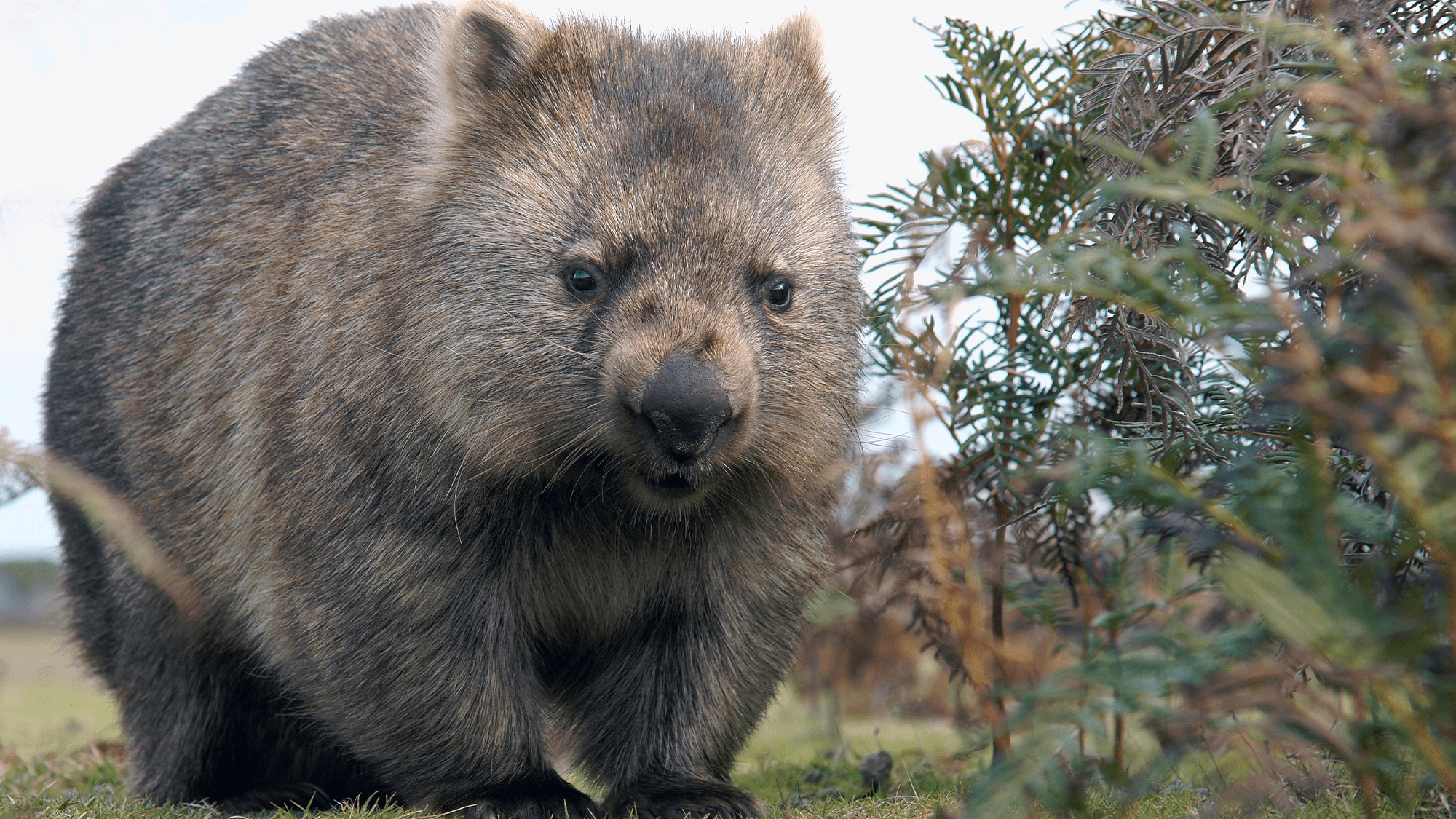Do wombats–the boxy Australian marsupials already famous for their cube-shaped poop–use their butts to kill? A viral video with a sinister soundtrack claiming wombats kill with their backsides has been circulating for a few weeks. It’s the kind of assertion that sounds like a biological Mad Libs, so we spoke with Lisa Martin, a wildlife care specialist from the San Diego Zoo Wildlife Alliance in California to uncover the truth. Martin has spent close to 40 years looking after wombats–butts and all.
“When I first started working with wombats, I could see a level of flatness to their rumps, but it always surprised me just how hard it is,” Martin tells Popular Science. “It’s like a plate. So it’s flat, very dense, and covered in fur. When you pat that cartilaginous plate, it almost sounds like you’re patting on a three-ringed binder. It’s not like wood hard, but it’s definitely solid.”
The idea that wombats can use their butts to kill is a bit of a myth that has not scientifically been documented. In the wild, dog-sized animals like dingoes and Tasmanian devils prey on the smaller and herbivorous wombats. Wombats live in elaborate dens and burrows, much like meerkats.
If a predator followed them into their den, they could move their hard butts in a way that probably would make it very uncomfortable for the predators, who may then back out. But as for actually using their butts to kill something intentionally?
“I never say never,” laughs Martin. “I can imagine, if the circumstances were just right, perhaps if there’s a rock sticking out of the side of the burrow that the wombat dug, and a dingo followed them into this burrow, and the wombat maneuvered that plate in such a way that caused the rock to go into the skull or make a cut, and somebody witnessed that, it might look like the wombat surely intended for that damage to happen to the predator.”
Biologists who have studied wombats in the wild have reported seeing dead foxes at the entrance to burrows. However, they also have fierce claws that could also prove formidable when provoked, so these predators were not necessarily killed by buns of steel.
“It is possible, by their physiology and everything, but there is no evidence that that is actually happening,” University of Adelaide wombat expert Alyce Swinbourne told The Guardian. “There are a range of species that actually use the burrows, including the predators, so it might be housekeeping. When they get in there, they could remove the dead animal, and in the process, squash the skull while moving it out.”
Their bottoms are central to wombat flirting and eventual mating. According to Swinbourne, a female will bite a male wombat’s behind and run away so that he has to chase her and vice versa. However, it is a brutal process, with running and clawing and chunks of torn fur can be seen near dens after a large mating bout.
While their butts aren’t necessarily killing tools, these smaller marsupials can still be pretty rough around the edges when provoked.
“When I first started working with them, I would attribute them to a little tank because they’re solid,” says Martin. “They’re pretty docile, but if they get startled, part of their defense mechanism is to run for that burrow. And if you’re in the way, you’re going to get knocked over because they are such solid, sturdy things.”

